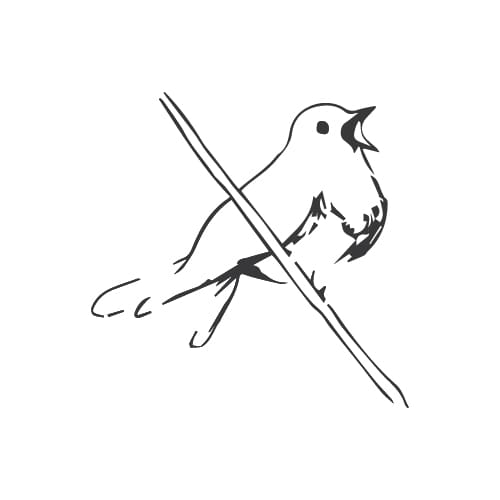Miss Ott and the Breaking Girl
- C. Christine Fair, Nightingale
| C. Christine Fair answers our October prompt by expanding upon her poem “When Uncle Art Babysat for Mom”, published in our most recent issue of Awakened Voices. While the original poem discusses the perpetrating figure of Uncle Art in just a few lines, Fair’s choice to expand the story into a prose piece allows for discussion of how the adults in this character’s life failed her throughout her childhood. Fair reasserts the survivor’s agency in this story and affirms that this character deserved to be helped then and deserves to heal now. You can read “Uncle Art Babysat for Mom” in Issue 9! |

Miss Ott and the Breaking Girl
by C. Christine Fair
With her uncle Art out of prison, the fifty-year old woman couldn’t concentrate. As usual these days, she dilated upon Miss Ott whom she reckoned to be in her early 70s by now. It was the woman’s foundational truth: Miss Ott could’ve saved her while there was something left to save. Every therapist to whom she recounted the story with an amalgamation of sadness, shame, resentment, and furor concurred.
Sipping black coffee, the woman ruminated about the events of that day. The 1977-78 school year had commenced. She was almost nine and in Mrs. Latham’s third-grade class. Miss Ott was a student teacher. In her memory, Mrs. Latham appeared matronly while efficacious, Miss Ott graceful but superfluous.
Each of her myriad therapists flinched the first time she narrated the events of that sordid day. She was anxious to present her replica of a Navajo residence, painstakingly fashioned from white Play-Doh and Lincoln Logs, but her nervousness was swallowed by pain: her vulva – a word she didn’t yet know – was ablaze beneath the “Little House on the Prairie” dress her mom stitched for the occasion.
For weeks, something was terribly wrong. Her girl parts were red, scabby, oozing blood and other frightening exudates. The fluids would dry, adhering her panties to her skin. When she moved, the fabric would pull away from her flesh, re-opening the sores anew.
Miserable, sitting in the glare of the late summer sun, in her full-length dress, Mrs. Latham wouldn’t excuse her to use the bathroom during her classmates’ presentations. Desperate, she did the unthinkable: she pulled her left leg up to the seat and her right leg into her body to shield others from seeing, slowly gathered her dress and painfully pulled back her panties to view the worsening infection. When she looked up, Miss Ott was looking right at her with revulsion.
The woman remembers meeting the young teacher’s gaze, pleading for help without words, tears welling up, her face hot with humiliation. Surely, she thought, this woman would know this wasn’t her fault. She’d tell the school nurse who would summon her and examine her injured girlhood. She imagined the nurse asking with concerned anger “Lucille Weber! Who did this to you?” She’d explain that her uncle Art, a lineman with oil-stained hands and filthy fingernails, repeatedly slid them up her dress, pushed aside her panties and penetrated her while she froze, eyes wide, in feral fear. The nurse would surely do something when no one else would.
The nurse never called. Days passed. She became truculent. Miss Ott assiduously avoided her. The girl was wading through a creak of shame that would one day swell into a river and carry her away.
While Miss Ott was the first to fail her, others ensued. Mr. Sinks, her high school guidance counselor, let her vent but told her she could escape by maintaining her near-perfect GPA and going to college. There was the Parkview emergency room doctor to whom, after swallowing a bottle of pills, she divulged everything. She begged him to call child protective services. He demurred and explained, likely correctly, that as execrable as her homelife was, foster care would be worse. He echoed the advice of Mr. Sinks. She probably wouldn’t graduate valedictorian as she expected to do unless she remained at home. On the doctor’s orders, her mother took her to Park-Center for counselling. There she detailed to her social worker the various vulgar men who stole her innocence and dignity and the women who did nothing. Each were mandated reporters, required by law to report these crimes. Not one did. Arguably, by the time she was in high school, it was too late. Suicidal ideation had long become her sanctuary. And then, when the woman was nineteen, Art murdered her aunt, and came for her. Had Miss Ott fulfilled her obligation, this too could have been averted.
*** In 2019, with Art out of prison, the woman tried-but failed-to find Miss Ott. She wanted to ask Miss Ott whether she remembered the girl with the injured vagina, whether she rued what she did or didn’t do that day. She wanted to tell her of Art’s innumerable sins against her, her aunt and her cousins.
But most of all, the woman yearned for an illusory truce with life which waged war on her and paths towards forgiving Miss Ott and ultimately herself which were always beyond her range of site.
*
C. Christine Fair is a provost’s distinguished associate professor within Georgetown University’s School of Foreign Service. Her books include In Their Own Words: Understanding the Lashkar-e-Tayyaba (OUP 2019); Fighting to the End: The Pakistan Army’s Way of War (OUP, 2014); and Cuisines of the Axis of Evil and Other Irritating States(Globe Pequot, 2008). She has published creative pieces in The Bark, The Dime Review, The New Reader Magazine, Clementine Unbound, Awakenings, Fifty Word Stories, Better than Starbucks and has a forthcoming piece in Badlands Literary Journal. Her professional website is ChristineFair.net. She blogs at https://shortbustoparadise.wordpress.com/. She tweets at @CChristineFair.
